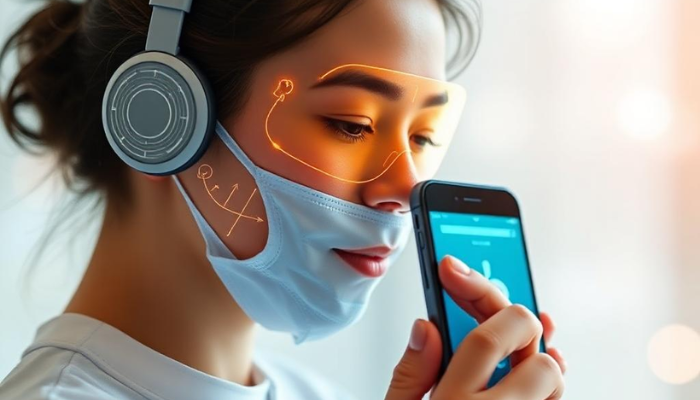Introduction
Health technology now has a future where development in the field is expected to bring about change to the way people take care of themselves. Healthcare will move away from location, travel, and time by AI, wearables, telemedicine, and genomic medicine trends that are expected to transform the industry. In this article, the author identifies the most promising health technologies that will redefine the health market systems by 2025 and beyond.
1. AI-Powered Virtual Health Assistants:
Due to such development in artificial intelligence, it will soon be impossible to operate day to day lives without virtual health assistants. It will be rather surprising if by 2025 ‘intelligent’ chatbots and voice assistants are not only going to remind us about the appointments or about the time to take the pills but they are also going to offer recommendations and guidance based on one’s personal experience. For example, there are Florence, a chatbot focussing on maternal and child health, and Woebot, a therapy chatbot. These smart health tools will keep on closely supervising and taking care of the patients hence enhancing the end results.
2. Wearables and Remote Monitoring:
Health tech’s future is in wearables, as the technology allows monitoring patients with chronic illnesses or elderly patients at a distance. These devices are worn at all times to monitor name factors, for example, heart rate, blood pressure and oxygen levels and send the details upwards to the clinicians in time. By 2025, the advancement of wearable technology will be even stronger with wearables even tracking, diagnosing, and treating. Moreover innovative smartwatches and implants will diagnose such diseases as cancer, Alzheimer’s etc in their early stages to prevent them.
3. Telemedicine and Home Health:
Telemedicine has existed for quite some time but the reason for rapid growth in the future years is pointed out. Telemedicine may be more a reality by 2025 due to remote consultation, monitoring and treatment hence improving on the accessibility of health services. In combination with the progresses in home care, patients will be capable of handling their diseases right from home. It will also mean great changes in that patient will not have to incur huge costs in traveling to hospitals, or the time spent in traffic.
4. Genomic Medicine:
Genomic medicine is also expected to transform health care because scientists are yet to fully unravel the influence of genes on people’s health. Determining the genomic features of diseases and making more individualized diagnosis and treatment will be possible with PM by 2025. Patients and doctors will use sophisticated diagnostic tests and artificial intelligence to understand a person’s risk of developing some diseases and develop prevention methodologies and treatments based on patient’s inherent profile. This approach will also assist in bringing into the market better drugs in treatment of different diseases and infection.
5. Augmented Reality (AR) in Surgery:
Augmented reality is an innovative technology that shall greatly transform the healthcare industry. In the following five years, the application of AR technology in surgeries will become much more common-sighted with the aid of improved models of patients’ anatomy, interactivity. This achievement is expected to extent operational efficiencies and gain a better quality of surgeries with negligible complications. At the same time, it will also enhance medical training for residents and fellows using AR tech that allows them to rehearse in practice on mannequins before doing the deed on real people.
6. Blockchain in Healthcare:
Blockchain is a technology that cannot be discussed any further without reference to Bitcoin or any other crypto-currency. Its applications are aplenty in the world of healthcare and this may include; Data sharing and communication aspects Interoperability Supply chains in the industry Fraud detection Blockchain, therefore, will be integrated into the healthcare system by 2025 to facilitate appropriate delivery of data between the providers, patients and the insurers. This should lead to improved co-ordination in the management of the patients, improved results from the care given to the patient and decreased use of funds.
7. 3D Printing in Healthcare:
Three-dimensional printing technology is still promising to revolutionize healthcare even in the years to come as the approach to the design and production of medical products as well as prosthetics. In the year 2025, through 3D printing, patients are going to get body built medical devices and implants that shall suit their body. This will have a dramatic effect on improving patients health since these devices will be made to fit patients and will work better than off the shelf products. Also, the cost of manufacturing these tailored gadgets will reduce, and hence expand the population’s reach across the society.
8. Quantum Computing in Medicine:
Quantum computing is a relatively novel methodology that has a promise in redefining the setting of numerous sectors, including the healthcare sector. This highly potent computation technology is expected to become valuable to researchers by the year 2025 in mapping complicated biological systems, synthesizing novel drugs and contrast large volume of genomic information. The discoveries in medicine will come about because the scientists and doctors will be able to shorten the time it takes to process a large amount of information with the help of quantum computers.
Conclusion
Many solutions that will revolutionizePersonal Health Technologies are expected to be introduced in the market and implemented through the forecast period 2025 and beyond. Ranging from AI capable virtual health assistants and novel wearable and smarter devices, Telemedicine, Genomic Medicine, and blockchain capabilities are among these solutions that will herald the next generation healthcare by providing bespoke, convenient, and efficacious care. While implementing these technologies, we can mine to a future where health care is patient-centric and personalized basing on their data and an overall gain of health to people and societies.




